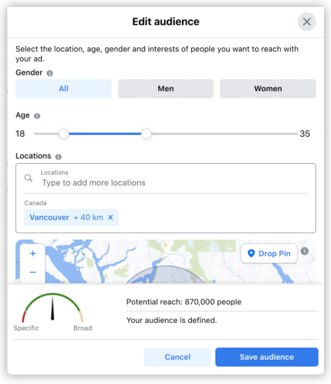Google launched a helpful content update in September 2023; this algorithm primarily focuses on content created for ranking well on search engines rather than to help or inform people. It has even helped generate signals used by our automated ranking system to ensure people see original content created so they can see better in search results. Although Google has yet to confirm that this update was also helpful in promoting content, it is clear that platforms featuring user-generated content and genuine people sharing authentic experiences have fared well. This update differs from site to site and has impacted many websites. In this blog, we will describe what Google updates are, how they work, and how they have impacted SEO strategy.
How does a helpful content update work?
There has been an uproar of algorithms in recent years. The update loosens up on machine-generated content while warning about third-party content hosted on websites or their subdomains. Google is constantly working on connecting better with people and has designed these updates to reward websites with valuable and relevant content. This update is a reassurance that Google values and rewards the efforts put into creating valuable and relevant content. It has also added to its helpful content system documentation with new advice on what to do if a website loses traffic after a helpful content update. The Google helpful content system primarily identifies quality signals corresponding to valuable content, which should be reliable and people-first content. Google has always prioritized the quality of the content when it comes to website ranking, so an effort has been made in the form of an update, which means that users can immediately find higher and more helpful content. We know that if the content is of relevant quality, it can be used for content marketing and as SEO professionals, we have recognized that this update rewards expertise and depth.
What does it mean for your business?
- Google will use a site-wide ranking signal to determine if you use helpful content.
- Google signifies AI-generated content as spam and uses a machine learning algorithm to detect it.
- Content made for ad monetization and clicks won’t work anymore.
- However, there would be no manual penalties, but you could lose organic visibility.
How to implement helpful content updates to your strategies?
- Use expert information: Expert insights can enhance your knowledge for posting unique and relevant content. Develop a deeper understanding of framing appropriate or relevant questions and answers for your content.
- Use content strategy outside of SEO: Develop a content strategy that looks beyond SEO, which means trying to look for queries for what your users are looking for outside of search engines. Learn exactly what your potential customers are trying to solve or overcome with a Google search on the product level and compared to a competitor.
There are features of helpful content updates
As a site-wide Google search update, Google classifies helpful and unhelpful content using the machine learning model. Every time the algorithm finds unhelpful content, it keeps the information for evaluation and helps the algorithm pick other unhelpful content. When Google releases a new algorithm or core update, it does not usually share tips to prevent abuse and avoidance. Users must read between the lines to understand what feature Google is highlighting. It has been consistent in telling users what they find valuable.
- People’s first content primarily aims to satisfy user content.
- Over-stuffed keyword content should be avoided.
- People’s first content should answer users’ questions and contain original insight from subject matter experts.
- User experience is considered of supreme level. The content should be unique, relevant and related to users’ intent.
What are the top strategies for creating helpful content?
- Focus on your area of expertise: You should have a desired or targeted audience who will navigate your website when they search for any product or service that they want. When creating content outside your expertise, you may create content only for the search engines and miss out on adding any relevant information from the user’s point of view. Also, if you are writing content unrelated to your niche, you are standing out of the area of your expertise. However, there are some rules for sticking to your knowledge, and they are:
- Only involve one topic in your website. Stay constricted to your niche.
- Do not include trending issues that are not related to your niche.
- Follow Google’s E-E-A-T, which is a part of Google’s search quality rater, evaluating the quality of the content.
- Frame actionable content: You should write content that encourages users to take action by buying a product or service from your business. Or, if you are writing a blog, it should be informative and enough to provide valuable lessons to the readers. Actionable content has nothing to do with word count but should accurately answer users’ questions to prompt them to implement those answers in the form of actions taken. It should teach users and help them achieve a desired goal. Add an engaging introduction, table of contents, and also work to optimize for list snippets, which can be expanded in the body of the article. Lastly, conclusions or examples will be provided that suggest the next steps for readers.

- Keep content relevant and updated: Some content can quickly become outdated, so content should be regularly updated to keep up with the changes occuring in the digital marketing world. Fresh and helpful content are those that should be relevant to users benefits in the form of:
- It should gather traffic.
- It should increase click-through rates.
- It should gather social media attention when shared on it.
Posting relevant content according to a content analysis done by Google also reminds users to post-factual or conclusive content. Moreover, only share content with confirmed answers and regularly update good-performing but outdated posts to keep them fresh. For example, user search intent means that your content should answer users’ questions or problems. Optimizing your content for search intent also helps to rank your website at the top of the search engine result page.
- Display authority: Authority helps Google trust your website. When authority and relevance combine in the content, it increases your website’s online presence and helps it rank on SERP. To create helpful content for users, write about products or services you’ve personally used. First-hand experiences make your content more compelling than generic content created to rank. Adding more personal experiences provides depth and relatability to the users as readers can connect with it on a personal level. However, even if you are writing on a topic that’s been tackled or discussed on other sites, you can add a new viewpoint and personal takeaway to make your content unique. You can even contact and interview subject matter experts to make your content more compelling if you want to gain personal experience.

- Never neglect user experience: Ensure your user has a satisfying experience while reading your content. It can be enhanced in many ways, like adding images, videos, and infographics to attract users’ attention quickly. Adding alt text and captions in your visual content or adding media to break up large text parts helps users process and retain information faster. You can also provide a good user experience by following technical SEO strategies. Optimizing website security and page loading speed makes indexing of the new content quick. Also, different content formats should be used while posting content to increase consumer experience. Small things like noting the punctuation, spelling, and format matter when crafting a good user experience. Various tools are available to check for grammar and vocabulary mistakes before your content goes for publishing and making it live.

How can you create helpful content?

- Write for your target audience: According to Google updates, you should write content keeping the target audience in mind. Your content should primarily cover your target audience rather than reporting on unrelatable issues that are irrelevant to your niche. Writing content for your target audience is important not just for ranking on Google but also for your business reach among the audience. Registering for a specific set of audiences lets you connect with them personally because they will not only read it to get any information about your business but also avail service from it. Also, if you write blogs for certain sections of people, they will be encouraged to share them on various social platforms.

- Answer the questions completely: Google’s algorithm clearly states that the kind of content it wants to promote should match users’ queries. In other words, the type of question and answer your searcher has typed into Google should lead the user to your business’s website. Google is making it clear that it wants to promote complete, comprehensive, and total answers to search queries in its search results. Also, if you are posting a blog, it should be helpful enough to keep your audience engaged on your website. To sum up these points, it should answer the user’s question completely, and the user should have a satisfying experience.

- Add value to your content: Simply writing content that has already been discussed needs to be improved. You need to add value by adding relevant data, some updated facts, etc. In this way, you can add value to your content and engage the audience for a longer term. According to Google, If you want your content to rank on search engine result pages, you must add something unique or better than what your competitors have posted on their websites. You can do so by doing extensive original research and then writing that content in the most user-friendly or SEO-friendly way.
- Be an expert on your topic: According to Google update, you need to make sure that in whatever content you are writing, you are an expert on that topic, should have first-hand experience in using the product or service of your business, or must have done thorough research on your topic. Also, it means that Google wants to promote content written by people who know what they are talking about. Unless you have a big team, it is impossible to gain expertise on various unrelated topics. This focus on ‘expertise’ is not new either; for years, Google has been figuring out various ways to make sure that content written by expert, authoritative, and trustworthy sources helps to rise to the top of its search results.
- Focus on a specific topic: Google clarifies that you should write on a particular topic instead of diverting to multiple issues. Your website should have a primary topic on which you write blogs or post any content. You need to understand that you can not write content on different topics in the hope that they will rank on search engine result pages. Google guidelines are very sorted, stating that your blog or any other type of content should have a well-defined niche. So, if you want your website to rank at the top of the SERP, you need to focus on a single topic and research that topic thoroughly to write it from an SEO point of view. In other words, you need to be a specialist in your niche rather than reporting on all topics unrelated to your niche.
Final thoughts
Thus, we know that, according to Google’s guidelines, creating content for the user and using a search engine is essential. Moreover, writing content related to your niche, adding value to your content by researching it minutely, and keeping your content relevant and updated can improve website ranking on search engine result pages. A proper content strategy has to be made, which can be made by SEO experts to make content specified for their target audience and also assist the content strategists in being experts on their topic. Any marketing agency that wants to perform well in the online marketing world must implement Google’s guidelines to bring visibility to their content.
Reference:
-
306, 2024Understanding Google’s preference for crawling high-quality content
Crawling websites is [...]
-
2905, 2024All you should know about third-party cookies by Google
Cookies have revolutionized [...]
-
2405, 2024Helpful content update by Google to enhance website ranking
Google launched a [...]





Leave A Comment